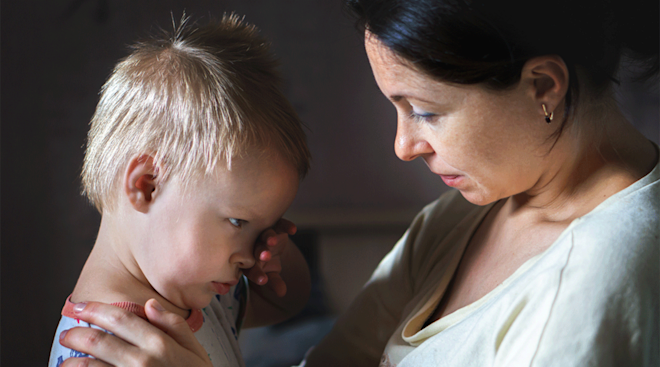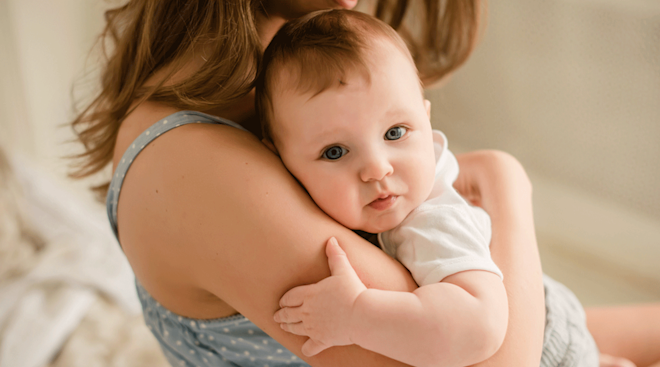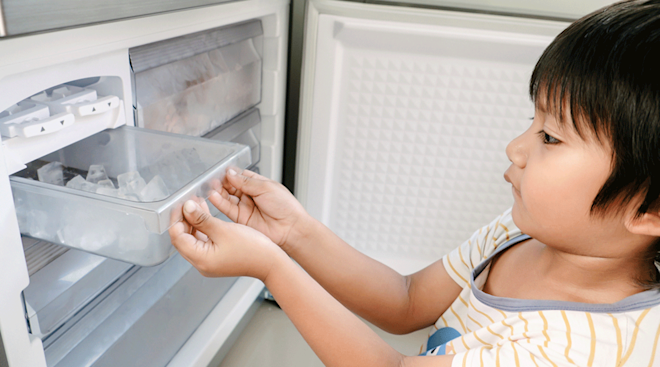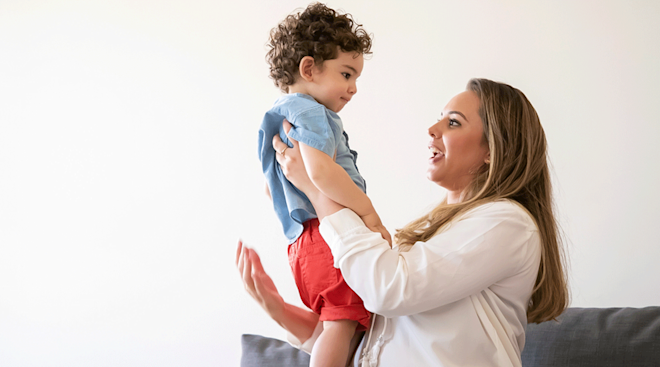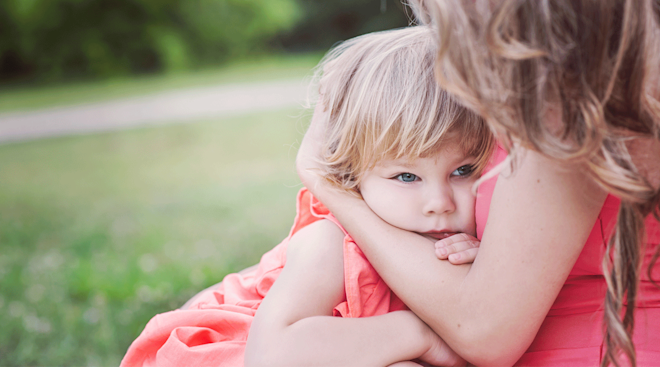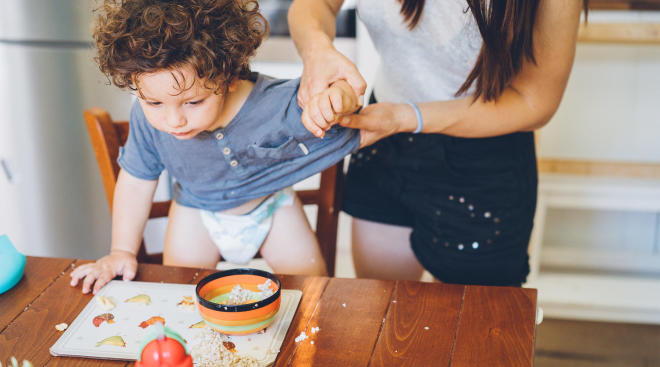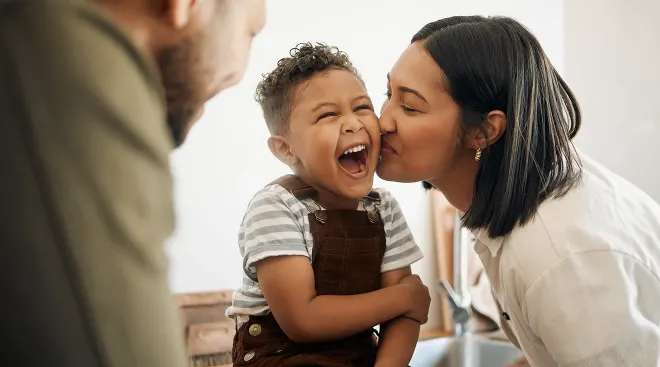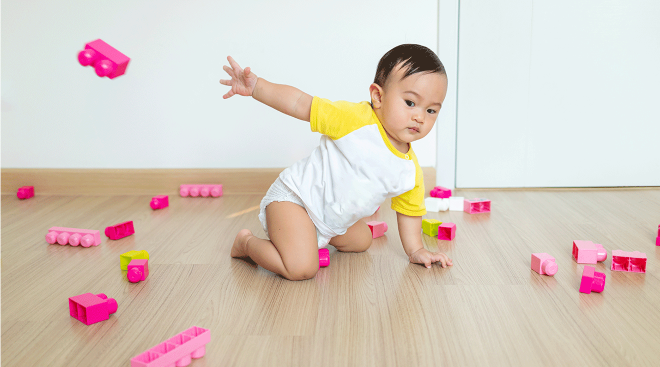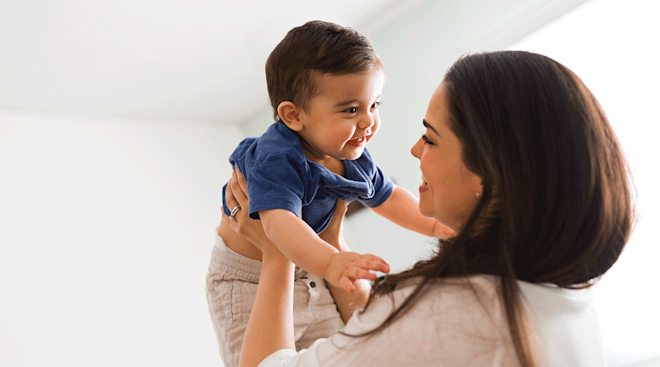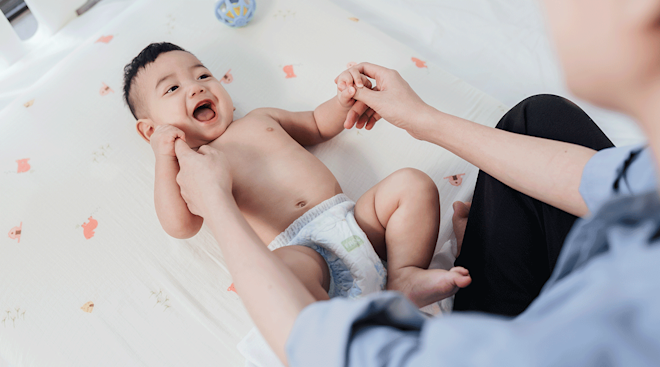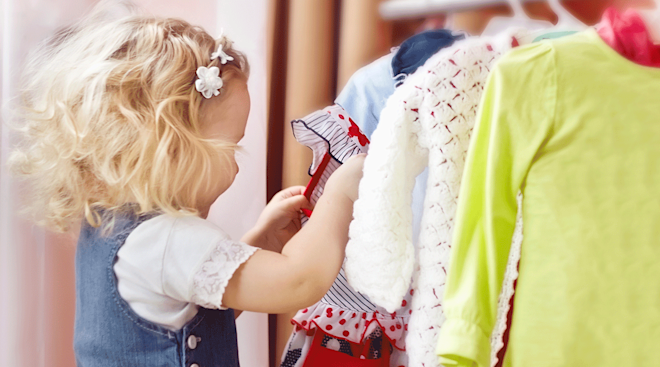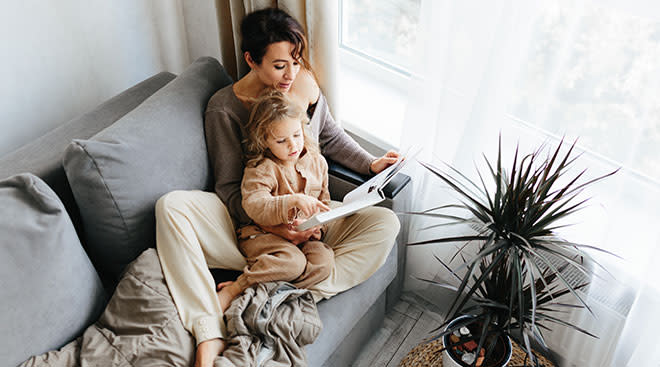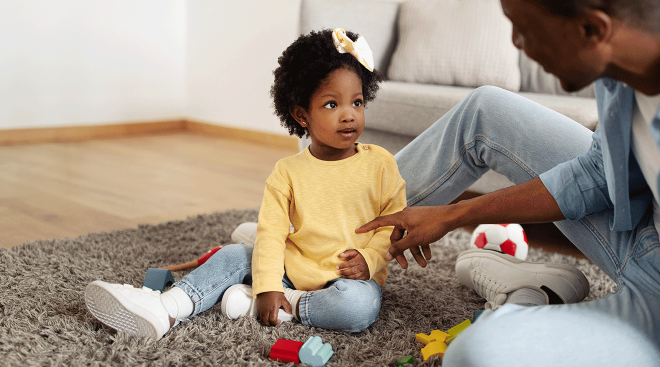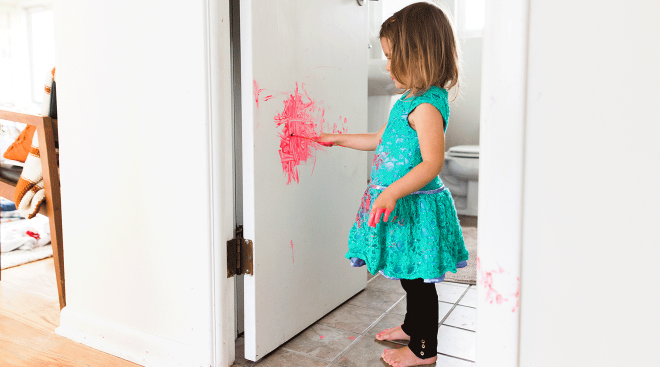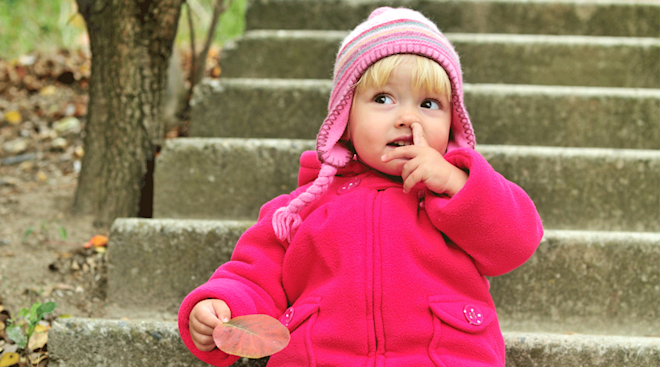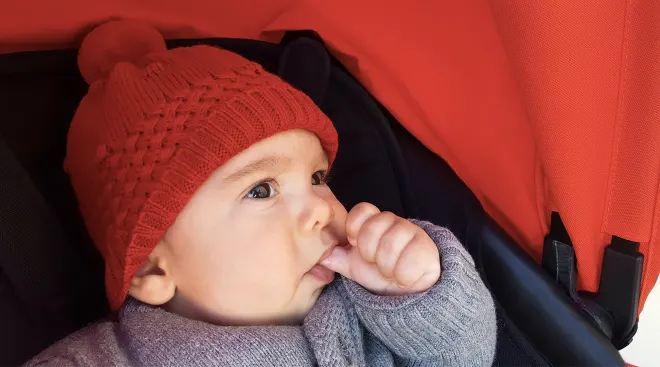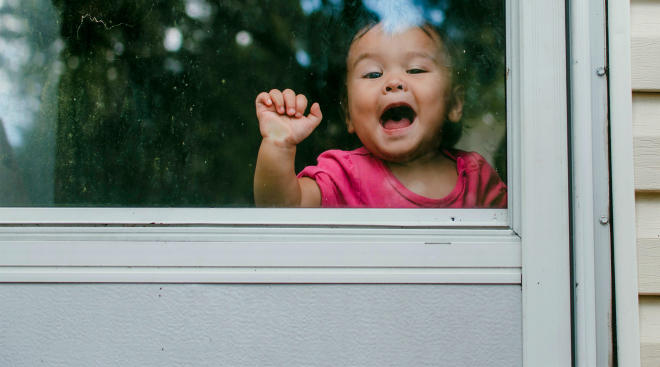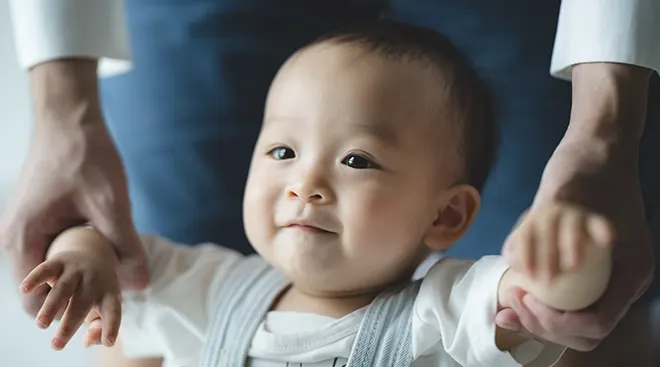How to Raise a Confident Kid
When we think about what we hope for our children later in life, being confident is usually toward the top of the list. After all, confidence is key to having healthy relationships with others, doing well in school and excelling in a chosen career. But while it’s an important trait in adulthood, confidence—as well as high self-esteem—are actually first established in childhood, as early as the preschool years. Of course, a person’s sense of confidence and self-esteem will evolve as they move through stages of life, but experts agree that building confidence early on leads to success in later life. Here, experts explain what confidence looks like in young children, why it’s important to nurture and how to build confidence in kids.
Confidence is feeling sure of yourself and your decisions and abilities, despite any risk. And according to research, people actually start to develop this sensibility at a young age.
Learning to trust your own abilities starts as soon as babies begin to crawl or take their first steps, but real confidence presents closer to the preschool age, explains Cindy Hovington, PhD, founder of Curious Neuron, a science-backed parenting consultancy. “This is when the inner voice kicks in and can play a larger role when kids begin school,” she says.
It was long thought that young children were cognitively unable to reason about their self-worth—but a 2017 NYU study found that, in fact, kids as young as 4 have a sense of self similar to that of adults. “Young children can think of themselves as possessing abstract traits and abilities, and they can also reason about their self-worth, which has implications for self-esteem,” researchers wrote. A 2015 study found that self-esteem for kids—either positive or negative—is established by 5 years old.
This keen sense of self-worth at so young an age can also be greatly impacted by others. “This level of maturity in reasoning about the self also means that young children can become dispirited in the face of failure and are not the undaunted optimists that previous theories have described,” NYU researchers wrote. “We need to think carefully about, and investigate, ways of supporting young children’s motivation and engagement with important—but often difficult—activities such as school.” This is also proved by a 2014 study, which demonstrated that positive family experiences in early childhood play an important role in having confidence as an adult.
Confidence in kids younger than 5 years old looks different than it does in adults, Hovington says. Much of the confidence that little kids develop comes from gaining a better understanding of their body through physical, motor and risky play, which involves testing their limits. A 2015 review found a link between risky play and improved learning, creativity and social skills, while a 2019 study found that kids who gained experiences through experimentation benefited in their overall development.
According to Christina Furnival, LPCC, a child and family counselor, confidence in kids can show up in several ways, including:
- Independence and wanting to accomplish tasks by themselves
- Able to easily join in on playdates or go off to school without looking back (“This demonstrates a comfort in their skin and surroundings reflective of feeling confident,” Furnival says.)
- Mischievousness and not always listening to parents’ requests (“They believe in themselves and their own thoughts and opinions,” Furnival explains.)
A child as young as 3 years old might be able to recognize a feeling of confidence, Furnival adds, though she says they might describe it with words like, “proud,” “happy” and “excited,” as well as with phrases like, “I can do it!”, “I believe in myself” and “I love myself.”
While some kids might naturally be more independent than others, there are plenty of ways parents can build confidence in kids from a young age—and much of it stems from parenting methods. “Balancing warmth with limits and boundaries helps our children know that we are there to keep them safe and support them,” Hovington says. “When they know this, it makes it easier for them to take risks.” Below, Furnival and Hovington outline some self-esteem activities for kids that parents can try at home.
Encourage a growth mindset
A growth mindset “helps children understand that they’re always learning and growing,” Furnival explains. If your little one doubts their abilities, “validate them and empathize with them while encouraging them,” she says. “It’s our job to express our confidence in them so that they can begin to feel confidence in themselves.”
The idea of a growth mindset vs. a fixed mindset was developed by Carol Dweck, PhD, a psychologist at Stanford University. According to her research, growth mindsets help people become resilient and persist in the face of challenges, while fixed mindsets make people believe they’ve done all they can and give up more easily. Having a growth mindset can help kids be less afraid to take risks and make mistakes, making them more confident in their abilities.
Include them in household chores
Raising confident kids involves helping them become self-sufficient. Asking them to help you around the house is not only a nice perk for you, but it will also strengthen their sense of independence and capableness. “Some children enjoy participating in housework and feel proud that they’re able to mimic what their parents are doing,” Hovington says. For example, “If you’re folding clothes, you can ask a 3-year-old to help you find three pairs of matching socks. If you’re doing yard work, they can be responsible for watering the garden.”
Praise the process rather than outcome
To build confidence in kids, encourage their process rather than the end result. This helps them understand the importance of hard work and can lead to high self-esteem and lifelong achievement, Furnival says. This is backed by a 1998 study conducted by Dweck that found praising effort over intelligence was found to be more beneficial for children. For example, “If your child shows you some artwork, you can say ‘I love the colors you selected’ or ‘You’re working hard on practicing to color inside the lines,’” Hovington says.
Let your child make mistakes
Another way to build confidence in kids is by teaching them that mistakes are opportunities to learn and grow. This can also make it easier for them to take risks (like raising their hand in school) without worrying about being wrong, Hovington notes. One fun confidence-building activity for kids: “You can nurture their curiosity by having an ‘I wonder’ space on the wall where you add sticky notes with questions your child has that you can’t answer. Look it up online together,” she suggests. This is also a great way to teach your child that it’s okay not to have all the answers—and that you can learn at each stage of life.
Avoid being overprotective
This one goes hand-in-hand with allowing your child to make mistakes. As hard as it can be to not help your child, research shows that being overprotective and too controlling can actually contribute to lower confidence in kids and increase their anxiety. “Not allowing risky play or your child to be independent in the home creates a narrative in their mind that ‘I am not good enough to do this on my own,’” Hovington says.
Be a role model
Young children observe everything—more than you might think—and they learn from what they see. Modeling your own positive self-esteem is a great way to raise confident kids. “Talk out loud about your process, including encouraging yourself and celebrating yourself,” Furnival says. “Try to not talk about yourself negatively in front of your children—or at all. If you realize you are, catch yourself, and explain how you are trying to not say mean things to yourself anymore.”
Talk about feelings
Talk to your little ones about how feelings present themselves and how they might make people act. This helps young minds recognize what feelings are and how to label them, Furnival says. To teach your child about confidence, explain what it is and how it might make your child feel. Part of explaining feelings to little ones is teaching them about self-love and talking to them about healthy relationships—both with others and with themselves. “When you list with them who you love, include yourself, and have them include themselves in their own list as well. Help them to celebrate and love their own uniqueness,” Furnival offers.
Don’t label your child
Avoid using labels—particularly negative ones—for your child. “Don’t treat your children’s unwanted behaviors as character traits,” Furnival says. She cites the example of a child who has low energy and is consequently labeled as “lazy.” “We have to be so careful, because what we say to our children becomes their internal voice over time,” Furnival says. “We want to call them terms that are positive.” Daily affirmations can also show children the power of words and build up their self-esteem.
At the end of the day, parents are the ultimate role models for what their children learn. “All values and skills we want to teach our children begin with us. If your relationship with yourself is strained, do the work and learn how to love yourself first,” Furnival says. “Your children will mimic what they see modeled, and there is really no better reason to work on ourselves than that!”
About the experts:
Christina Furnival, LPCC, is a child and family counselor, mom of two and author of the books The Not-So-Friendly Friend and kids’ series Capable Kiddos. She earned her bachelor’s degree in childhood development from Vanderbilt University and her master’s degree in professional counseling from Lipscomb University, both located in Tennessee.
Cindy Hovington, PhD, is the founder of Curious Neuron, a science-backed parenting consultancy that aims to make the science around childhood development more accessible and digestible for parents. She’s also the host of the Curious Neuron podcast. She obtained her master’s degree from Queen’s University and doctorate in neuroscience from McGill University, both located in Canada.
Please note: The Bump and the materials and information it contains are not intended to, and do not constitute, medical or other health advice or diagnosis and should not be used as such. You should always consult with a qualified physician or health professional about your specific circumstances.
Plus, more from The Bump:
Navigate forward to interact with the calendar and select a date. Press the question mark key to get the keyboard shortcuts for changing dates.



































